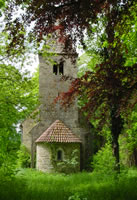 "What are druids, anyway? Do they still exist today?"
"What are druids, anyway? Do they still exist today?"
In this day and age, most people don't know what to do with the word Druid and what it means as people.
In my childhood, I was well acquainted with Getafix, the prudent druid from the comics "Asterix and Obelix". After all, he brewed the magic potion that made his people strong and invincible. Today's druids are not recognizable by their white robes or the sickle in their hand. We don't need a sickle for our work today. At least I don't. Who knows where there are still druids who use sickles.
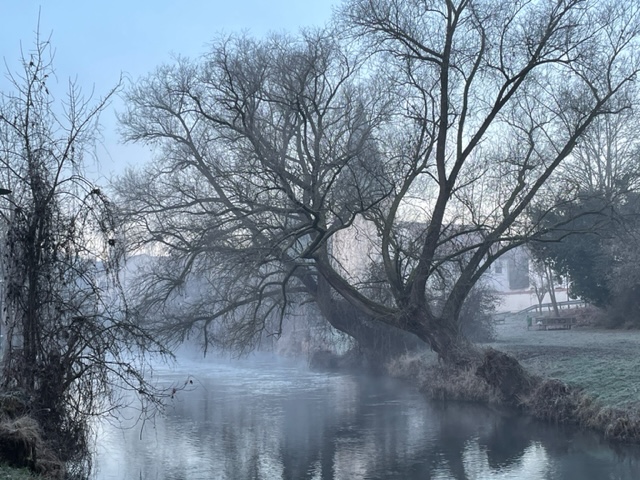 Klaus Jungmann puts a lot of emphasis on holistic healing in his profound and unique training. My personal understanding of Druidism is to help people in an honest and straightforward way in healing and spiritual growth!
Klaus Jungmann puts a lot of emphasis on holistic healing in his profound and unique training. My personal understanding of Druidism is to help people in an honest and straightforward way in healing and spiritual growth!
Above all, I want to bring about the greatest possible development and change for the better and to start exactly where it is needed and right at the moment. I grasp the moment and together we clarify the current situation. This often results in a clear decision for the future. The simplicity and clarity that is in the blessings flows into daily life. A change happens, the course is set, "the train" takes direction and picks up speed. The growth of people gives me a lot of joy and is part of my destiny to help them in their lives.
The following text is from Klaus Jungmann, alternative practitioner from Völklingen, Germany, when he was asked to describe Druidism:
Druidism
 Contrary to the widespread belief that the spiritual tradition of Europe was lost in the Roman Empire and the beginning of Christianity, the teachings of the Druids were preserved in secret. While many ritual customs survived in the population and were partly integrated into the new philosophies, the inner school was successfully passed down through many generations.
Contrary to the widespread belief that the spiritual tradition of Europe was lost in the Roman Empire and the beginning of Christianity, the teachings of the Druids were preserved in secret. While many ritual customs survived in the population and were partly integrated into the new philosophies, the inner school was successfully passed down through many generations.
From teacher's mouth to student's ear, without treacherous written records, as has always been the tradition. This was facilitated by the fact that Druidism has always functioned without ritual and hierarchy. Stripped of its external obligations, it could be preserved in its simplicity. Without its own technical language, terms from the common colloquial language were chosen for exercises and techniques, thus creating a secret language that was inconspicuous at all times.
Origin/History
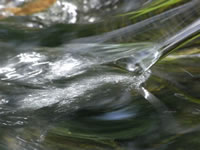 The origin of Druidism is lost in the darkness of time. Known is internally only that the druids worked already before the megalithic culture.
The buildings of this time were mostly built under the guidance and cooperation of the druids and the knowledge of function and use is still taught today.
Druidism experienced a well-known flowering in the time of the Celts. They took over the cultural leadership and religious priesthood of Celticism.
However, long before the contact with Rome, they went into secrecy. The then acting priests were usually only partially educated and mastered only the ritual, or also religious part of the previous fields of activity. By this timely reaction to the change of the time quality it was possible to save the teachings over the times.
The origin of Druidism is lost in the darkness of time. Known is internally only that the druids worked already before the megalithic culture.
The buildings of this time were mostly built under the guidance and cooperation of the druids and the knowledge of function and use is still taught today.
Druidism experienced a well-known flowering in the time of the Celts. They took over the cultural leadership and religious priesthood of Celticism.
However, long before the contact with Rome, they went into secrecy. The then acting priests were usually only partially educated and mastered only the ritual, or also religious part of the previous fields of activity. By this timely reaction to the change of the time quality it was possible to save the teachings over the times.
Today

At present, about 100 members belong to the community. Of these, nine are teachers and one is a master. (These designations are not rankings, they refer to the teaching function).
There are no fixed rules, but confidentiality and mutual respect are taken for granted.
Self-conception
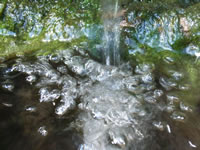 The self-image of the Druids refers to the care for the people who entrust themselves to them and the preservation of the harmony of creation. For this reason, when selecting students, care is taken to ensure that the aspirant has anchored in his or her personality the pursuit of positive values.
This is ensured by personal recommendation of a member and in-depth acquaintance by the instructor. The objection of a member is usually sufficient to refrain from accepting the candidate. Personal responsibility and freedom of the person are characteristic for Druids. Not subject to any rule and commited to no one but the divinity and themselves. --- Which is why the selection is made very carefully.
The self-image of the Druids refers to the care for the people who entrust themselves to them and the preservation of the harmony of creation. For this reason, when selecting students, care is taken to ensure that the aspirant has anchored in his or her personality the pursuit of positive values.
This is ensured by personal recommendation of a member and in-depth acquaintance by the instructor. The objection of a member is usually sufficient to refrain from accepting the candidate. Personal responsibility and freedom of the person are characteristic for Druids. Not subject to any rule and commited to no one but the divinity and themselves. --- Which is why the selection is made very carefully.
Training
 Due to the nature of the training, it has been found that the collaboration is usually done in a humorous mood and laughter and joy are considered indispensable.
Due to the nature of the training, it has been found that the collaboration is usually done in a humorous mood and laughter and joy are considered indispensable.
The teaching is simple, but the lessons have a complex structure and resemble more a sports training than a magic school, as might be expected. Theoretical instruction is almost entirely dispensed with, the theory being revealed through practical exercise. It is a path of experience.
In contrast to other directions of spiritual training, imagination is not encouraged in this training. The direct experience of the creative processes is aimed at. The formation of an imagination would hinder this, because here the image of the assumed reality is pushed between the perceiver and the object of perception.
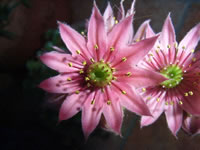 It starts with giving the student access to his mental "musculature". The focus of the training is the ability of fine mental perception.
The peculiarity of the basic techniques is based on the fact that the student is taught to change his perception from passive experience to active action. Therefore the comparison with mental muscle training; the Druid understands his perception ability as an organ of action.
When the student begins to understand and use this activated perception, the next step is to strengthen and purify the different channels of perception, and then to go through the different levels of perception. In this way, the ability to perceive is systematically practiced and built up. On average, this basic school lasts about two years.
It starts with giving the student access to his mental "musculature". The focus of the training is the ability of fine mental perception.
The peculiarity of the basic techniques is based on the fact that the student is taught to change his perception from passive experience to active action. Therefore the comparison with mental muscle training; the Druid understands his perception ability as an organ of action.
When the student begins to understand and use this activated perception, the next step is to strengthen and purify the different channels of perception, and then to go through the different levels of perception. In this way, the ability to perceive is systematically practiced and built up. On average, this basic school lasts about two years.
The theoretical part of the basic training includes the connection of the sensory channels with the basic spiritual elements and the single, and thus main, tenet of the Druid school:
"We allow our attention to rest on the object of our interest."
The aim of the whole training is to grasp the structure and course of creation and to work harmoniously on this basis.
Pictures of water, moon, flowers - © Klaus Jungmann, Völklingen


